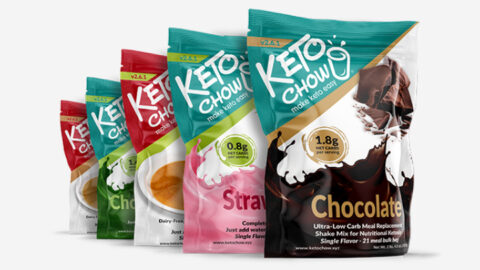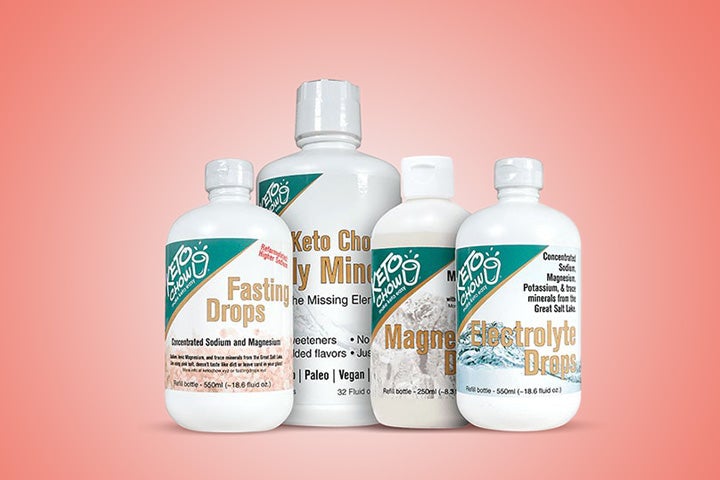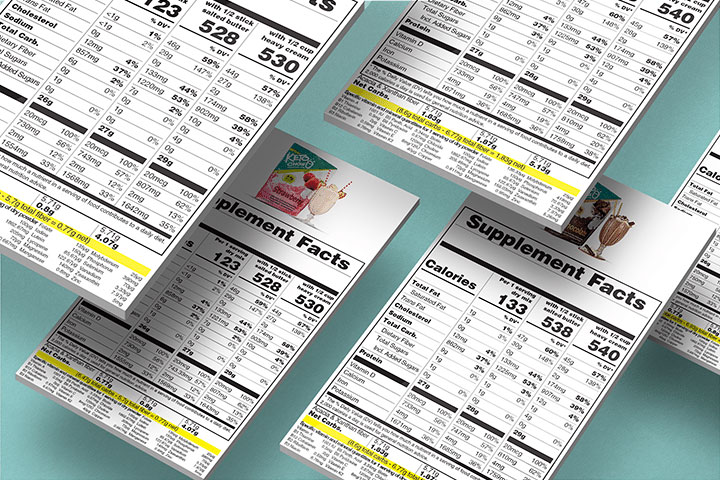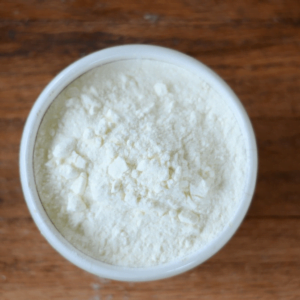Several reviews and meta-analyses have long since disproven any association between saturated fat intake and cardiovascular disease (CVD).
Back in the 1990s and early 2000s, when the Atkins diet was center-stage for weight loss, even people who opposed the use of low-carb diets acknowledged that low-carb was effective for weight loss. However, the common refrains were, “Sure, you’ll lose weight, but you’ll die from a heart attack!” And, “Yes, a low-carb diet is great for weight loss, but you’ll just make a thinner corpse!”
What many people don’t know is that Dr. Robert Atkins was a cardiologist! With his professional reputation at stake – not to mention his patients’ lives – why would he recommend that his patients – plus the millions of people that would read his book – do something that he thought would harm them?
So what’s the truth about keto and heart health? If a keto diet has helped you lose weight, reverse type 2 diabetes, get off meds for high blood pressure, say goodbye to brain fog, and other health benefits, does that necessarily happen at the expense of your cardiovascular health?
Isn’t All That Fat Bad for the Heart?
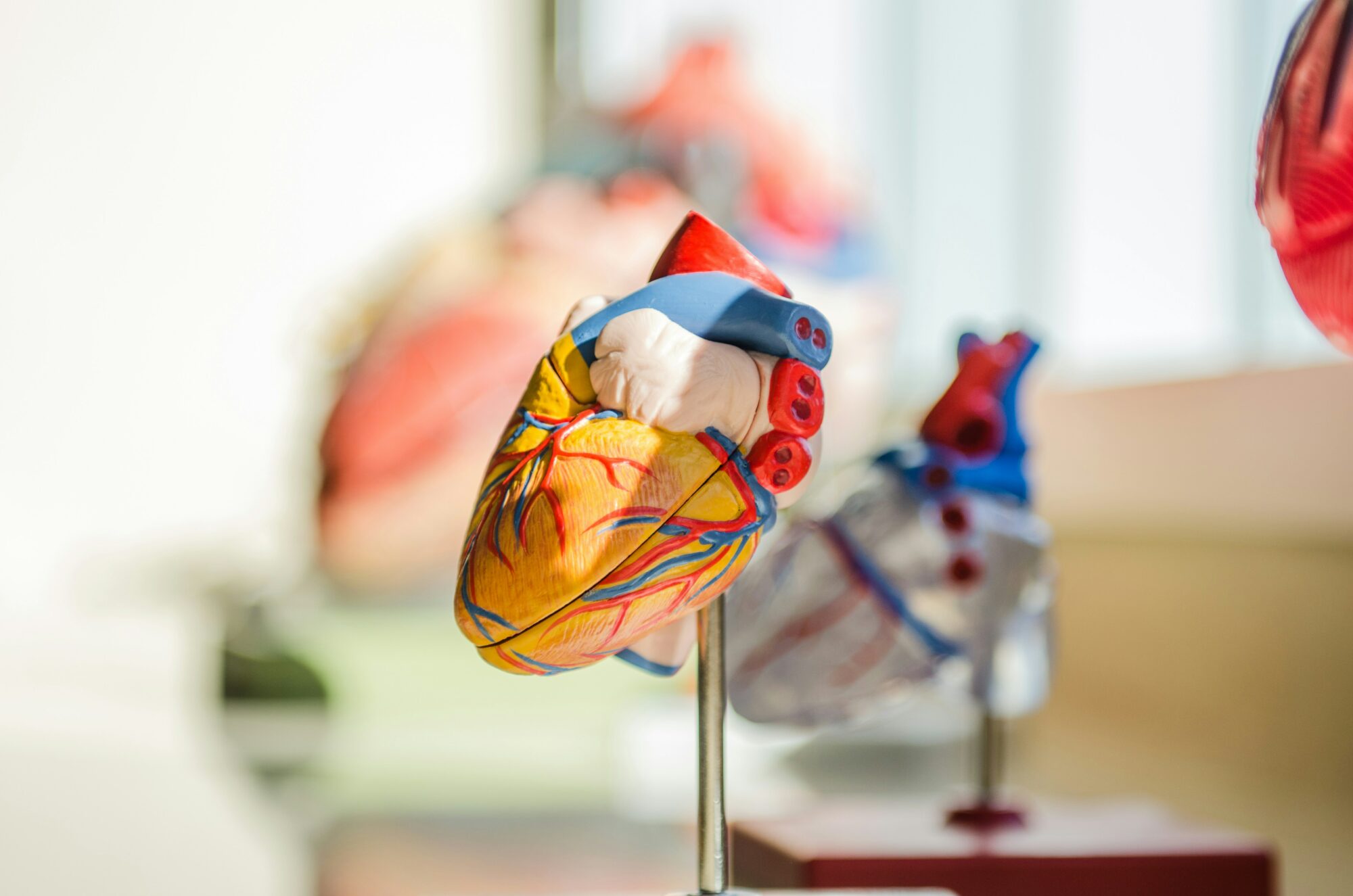
Keto diets are sometimes referred to as LCHF, short for low-carb, high-fat. The high fat content of keto diets – especially if someone chooses foods high in saturated fat – is the main reason for concern about adverse effects on heart health. After all, saturated fat clogs your arteries, right?
Nope. 1985 called. It wants its myths back.
What the reviews say

Several reviews and meta-analyses have long since disproven any association between saturated fat intake and cardiovascular disease (CVD).
“…dietary efforts to improve the increasing burden of CVD risk associated with atherogenic dyslipidemia should primarily emphasize the limitation of refined carbohydrate intakes and a reduction in excess adiposity.”
Limit refined carbs and reduce excess body fat? Sounds like exactly what keto diets do!
A more recent review published in the Journal of the American College of Cardiology noted:
“The recommendation to limit dietary saturated fatty acid (SFA) intake has persisted despite mounting evidence to the contrary. Most recent meta-analyses of randomized trials and observational studies found no beneficial effects of reducing SFA [saturated fatty acid] intake on cardiovascular disease (CVD) and total mortality, and instead found protective effects against stroke.”
It’s time to stop blaming fat – especially saturated fat – for what refined sugars and excess carbs are doing!
The Connection Between Diabetes, Insulin Resistance, and Cardiovascular Disease

Okay, so saturated fat isn’t the artery-clogging culprit it was made out to be. But there’s a lot more to keto diets than just the fat. What about the lack of “heart-healthy whole grains” and the absence of copious amounts of fruit? Aren’t those things crucial parts of a healthy diet?
It depends on how you define “healthy.” If you have type 2 diabetes (T2D) or a health condition caused or exacerbated by insulin resistance, then your blood sugar and insulin rise higher and stay elevated longer when you consume carb-dense foods.
And T2D and insulin resistance have been shown to be much stronger risk factors for early onset heart disease compared to total cholesterol or LDL-cholesterol. (T2D confers more than ten times the risk and insulin resistance confers six times the risk, compared to less than two times the risk for elevated LDL-C.) Obesity and hypertension were also stronger risk factors than LDL-C.
Keto diets are effective for reversing T2D and metabolic syndrome (which includes hypertension), and for facilitating weight loss. So, being that keto effectively nullifies four of the biggest risk factors, it stands to reason that keto actually reduces risk for heart disease.
Various conditions

Cardiovascular disease is the most common cause of death in people with T2D. A few different conditions fall under the CVD umbrella, including ischemic heart disease, heart failure, stroke, coronary artery disease, and peripheral artery disease. In total, these account for 50 percent of deaths in people with T2D.
Diabetes involves more than just high blood sugar. T2D is also a state of insulin resistance. Together, chronically elevated blood sugar and insulin damage the blood vessels and the associated hypertension can force the heart muscle to work harder.
Dr. Joseph Kraft, who pioneered the use of oral glucose tolerance tests that also included measurements of insulin, wrote, “Those with cardiovascular disease not identified with diabetes are simply undiagnosed.”
(Dr. Kraft may have been oversimplifying things a bit, though. Smoking and exposure to certain environmental pollutants can cause CVD, but his book, Diabetes Epidemic & You, is highly recommended if you want to learn more about hyperinsulinemia as a major cause of CVD.)
Ways Keto Improves Heart Health

Quite to the contrary of the misguided fearmongering about keto and heart health, carbohydrate restriction has been shown to improve markers of cardiovascular health by reliably:
- Decreasing triglycerides
- Increasing HDL-cholesterol
- Lowering HbA1c
- Lowering insulin
- Lowering blood pressure
- Reducing body weight
- Decreasing visceral fat
- Shifting LDL particles from pattern B (small, dense particles) to pattern A (large, buoyant particles)
Although LDL-C continues to be the main target of drugs intended to reduce risk for CVD, the triglyceride-to-HDL ratio is a much stronger predictor of cardiovascular status compared to total cholesterol or LDL-C.
A 2023 review stated that “the TG/HDL-C ratio has been proven to be an excellent novel risk marker for effectively predicting the risk for MetS [metabolic syndrome] and CVD.”
An older paper stated it plainly: “Elevation in the ratio of TG to HDL-C was the single most powerful predictor of extensive coronary heart disease among all the lipid variables examined.”
Lowering Triglycerides

Keto diets typically lower triglycerides and increase HDL-C. In cases where HDL-C doesn’t increase, the lowering of triglycerides still improves the ratio, so here again, keto has a beneficial effect on “the most powerful predictor” of heart disease.
Dr. Gerald Reaven, the first researcher to put the pieces together and identify chronically elevated insulin as the problem in what he called “syndrome x” – now called metabolic syndrome – sounded the alarm almost 40 years ago about the potential harm of recommending that all Americans follow a low-fat, high-carb diet, precisely because of the likelihood that this would induce hyperinsulinemia, raise triglycerides, lower HDL-C, and ultimately increase risk for coronary artery disease.
The Heart Loves Ketones

As noted earlier, the term “cardiovascular disease” encompasses multiple different conditions, only some of which are related to the heart muscle itself. So let’s take a brief look at how ketones can be beneficial for heart function.
First, it’s important to know that along with neurons and skeletal muscle cells, cardiac muscle cells are the body’s biggest consumers of ketones for fuel. In addition to ketones, cardiac muscle cells also use fat for energy. As much as 70 percent of the heart’s energy comes from fat.
A 2023 review covered multiple ways in which ketones are particularly beneficial in heart failure (HF). The heart is a very energy-hungry organ, since it requires a constant supply of energy to power its mechanical pump function as well as its electrical function.
In HF, cardiac muscle doesn’t generate as much energy, resulting in the heart not being able to pump effectively. This means cells don’t receive adequate oxygen and nutrients, ultimately leading to fatigue, shortness of breath, confusion or cognitive changes, and multiple other symptoms.
It may be therapeutic

Not only are ketones not harmful for the heart, it’s looking more like they might be highly therapeutic:
“Higher ketone body availability has been associated with beneficial CV effects, attributable to better cardiac energetics and decreased oxygen consumption. Thus, a ketogenic diet has the capacity to both manage and avert CVD.”
“…in patients with HF, ketone body plasma levels are increased and the failing heart redirects energy metabolism toward augmented use of ketone bodies at progressively higher rates, suggesting an adaptive response to stress. A positive correlation has been noted between the enhanced energy metabolism of cardiomyocytes and the concentrations of β-OHB acid and acetone. Thus, as more ketone bodies become available, protection against HF is enhanced.”
The failing heart struggles to generate enough energy to perform its essential functions. As noted in the review, which actually called ketones a “rescue” fuel in HF, “Ketone bodies constitute great fuel (“super fuel”) and generate energy more effectively than fatty acids and glucose.” For an organ that is having difficulty generating energy, it makes sense to increase its supply of a more efficient fuel.
The LDL Elephant in the Room

It’s pretty clear by now that keto diets look pretty good with regard to heart health. But there’s one thing we haven’t addressed yet. A big thing.
What if your LDL-cholesterol goes up – way up – on a keto diet?
Should you drop keto like a hot rock and gobble down the first slice of bread you can get your hands on?
Most people who adopt a keto diet see their total cholesterol and LDL-C decrease. A subset of keto dieters see these increase, and a smaller subset see these increase a lot. However, mounting evidence indicates that high cholesterol, by itself, independently of any other factors, is not a cause of CVD.
What the studies say

Multiple studies have identified numerous people with very high LDL-C (>190 mg/dL or 4.9 mmol/L) who have no arterial calcification. The amount of cholesterol in your bloodstream does not tell you whether you actually have atherosclerosis (“clogged arteries”). As much as 75 percent of people hospitalized for a heart attack did not have high cholesterol.
Groundbreaking research being done by Nick Norwitz, PhD (currently a medical student at Harvard) and colleagues has identified that the people most likely to experience dramatic increases in LDL-C on a keto diet are very lean and tend to be physically active.
Cholesterol researcher Dave Feldman coined the term “lean mass hyper-responder” (LMHR) to describe these individuals. (The LMHR classification includes very high LDL-C along with low triglycerides and high HDL-C, plus a lower BMI or being very lean.)
It’s important to identify for certain whether such a large increase in LDL-C is cause for concern in cases where a keto diet improves nearly all other markers currently used to assess cardiovascular risk. This is a very contentious area and research is ongoing.
(See here for the first results from a study assessing arterial calcification in LMHRs. There was no difference in calcification between LMHRs and age-matched controls with much lower LDL-C. This suggests that, by itself, substantially elevated LDL-C does not increase risk for atherosclerosis. Dr. Norwitz has several videos on his YouTube channel about keto and cholesterol and the LMHR phenomenon if you’d like to learn more. As always, work with a medical professional to assess your individual situation.)
Bottom Line

Keto diets support healthy cardiovascular function. Even when they’re rich in saturated fat, keto diets are still “heart-healthy.” Ketones are a powerful fuel for the heart muscle, and keto diets are effective for reversing or improving several of the strongest risk factors for CVD.
For people in whom a keto diet results in substantial rise in LDL-cholesterol, it’s not yet known for certain to what extent – if any – this might negatively impact risk for CVD when this way of eating improves all other biomarkers related to cardiovascular function.
I’ll let cardiologist Dr. Bret Scher have the last word:
“This assumption that it [keto] increases cardiac events and cardiovascular risk is a faulty assumption. There is no evidence to show that.” (Quoted on the Low Carb MD Podcast, July 2023.)
Looking for a low-carb meal?
Then check out Keto Chow! Keto Chow is a keto-friendly meal shake with 1/3 of your daily recommended nutrients. Choose from over 25 delicious flavors. Plus, it can be made in seconds!
